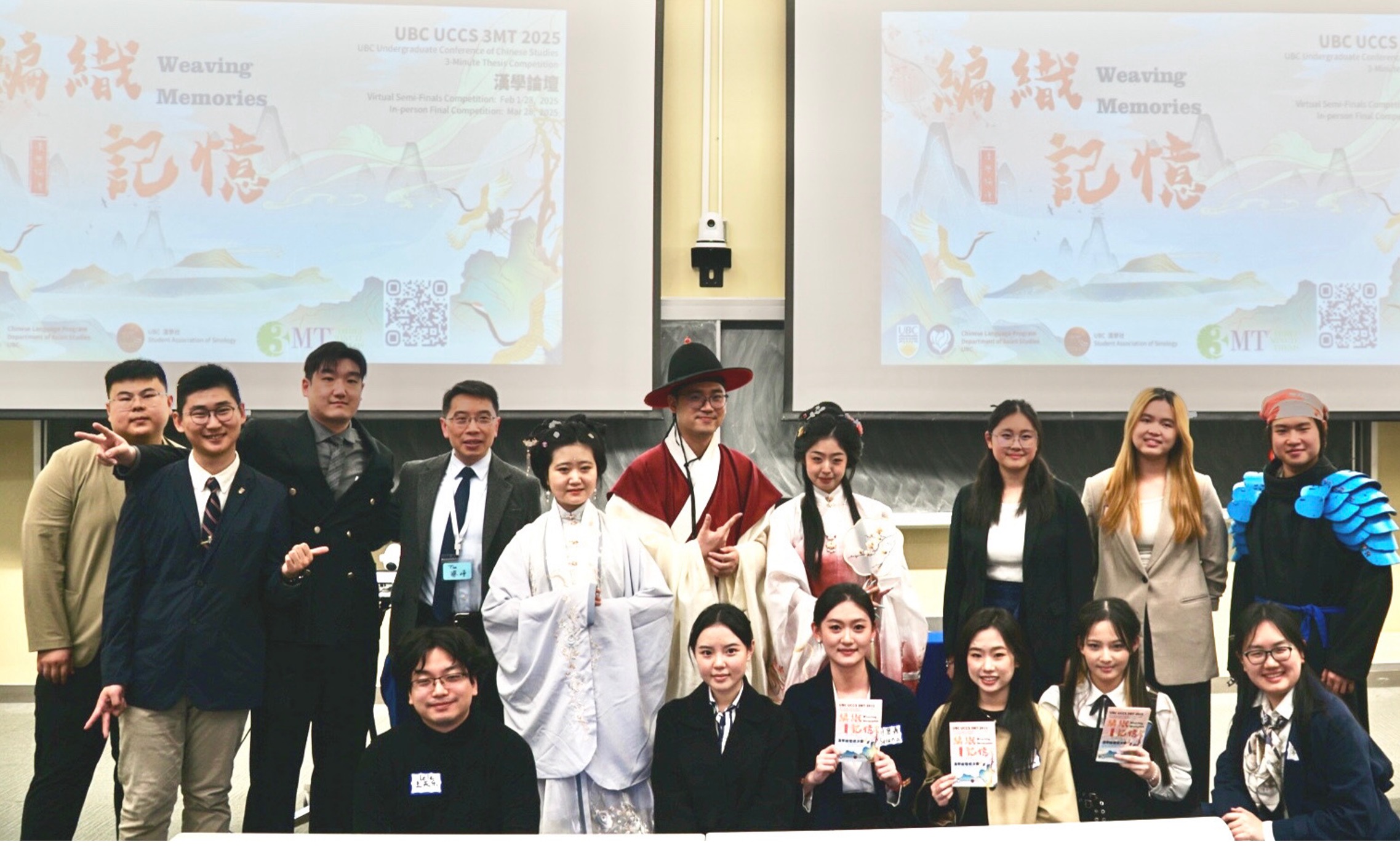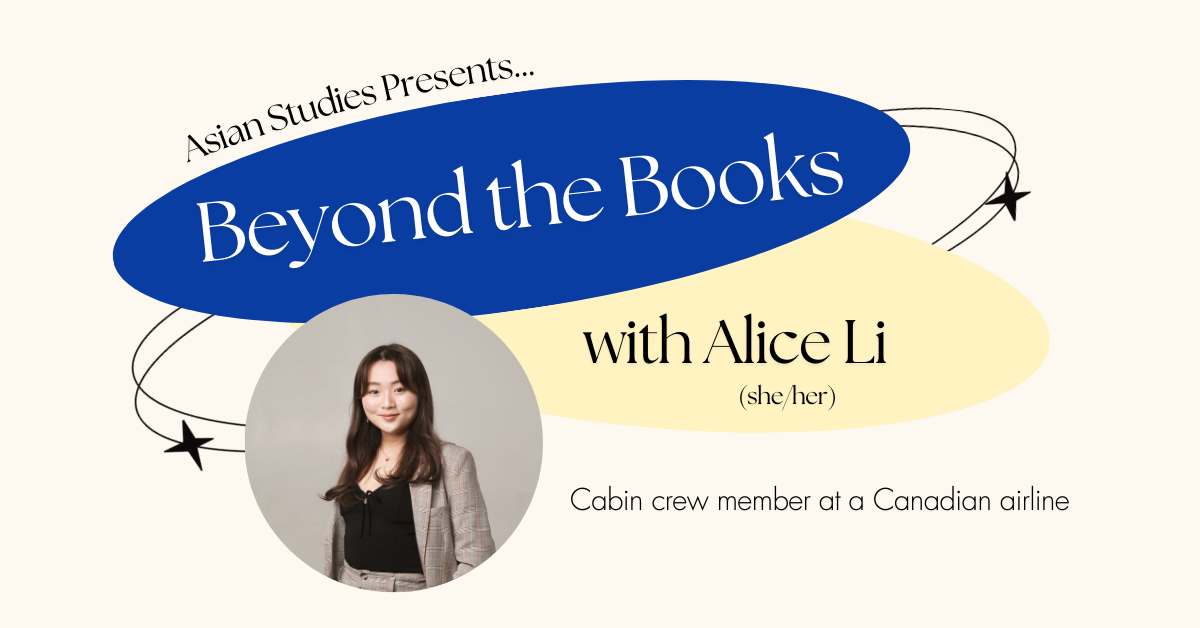![Max-Gruber-300x199[1]](https://asia.ubc.ca/wp-content/uploads/sites/18/2014/05/Max-Gruber-300x1991.jpg)
![Max-Gruber-300x199[1]](https://asia.ubc.ca/wp-content/uploads/sites/18/2014/05/Max-Gruber-300x1991.jpg)
Max Gruber
BA ’11
1. Could you go into some detail about your career path until now?
I am a relatively recent graduate, graduating in 2011, so my work history is quite brief. I received my degree in Asian Studies, with a focus on China and Mandarin. I have always had an interest in politics and international relations. Although I did not have a clear idea of what career path I wanted to go down immediately after graduation, I knew I wanted to apply my regional understanding of China and East Asia to the foreign policy arena. Plus, I assumed this is the field where my knowledge could best be utilized and where it would be most in demand. My family currently resides in Washington DC, so it was an easy decision for me to move back to the Capital region to search for work post-graduation. Unfortunately, it was quite a challenge landing a job within this field in 2011. The U.S. economy was still in recession, there was a surplus of job seekers, and all the talk in Congress focused on slashing budgets in the public sector. While I tried to find increasingly elusive positions within government or supporting the government, I actually worked in college admissions for UBC. I was the school’s Northeast Regional Representative for International Student Recruitment. At the very least I could gain some professional experience while supporting international higher-education, something somewhat tangentially related to my degree and interests. It took twelve months, but I finally landed a position with a defense contractor. I currently serve as an All-Source Analyst. In the most basic sense, I provide research and analysis support on a range of issues our government customers demand. Although I am not focusing on international issues, let alone Asia-Pacific issues, it is a stepping stone to opportunities within the public sector that focus on foreign policy.
2. How did you get your first job after graduating?
As I mentioned above, UBC offered me my first position after school. As with most jobs, it was a combination of qualifications and networking that landed me the job. My friend who graduated from UBC in 2010 previously served as the Northeast Regional Rep. When he left the position he introduced me to his team as he thought I would be a strong candidate. After that it was all up to me. I interviewed well and my qualifications met the requirements, so I was offered the job. I landed my current position the same way, making contacts within the firm/sector I wanted to work with, possessing the appropriate qualifications, and then interviewing well.
4. Are there any opportunities in your field?
Opportunities do exist, but they are not easy to come by. The economy still hasn’t fully recovered from the recession of 2008, and, at least in the U.S., the political reality is one of shrinking budgets. This means that there are fewer positions for increasing numbers of well qualified applicants. This is a dynamic that is not inherit to the field I’m currently in. It’s endemic to the whole economy, save for a few select fields, most notably, the technology sector.
5. What can students/recent graduates do to get a foot in your industry?
Unfortunately, one will have to move to where the action is. I can’t speak about the public sector in Canada, as I’m not Canadian, but if one is interested in entering the world of politics or foreign policy in the U.S., one will have to move to Washington D.C. Outside of the Capital region there are few opportunities available within this field. New York City, where the U.N., various think-tanks, research centers, and NGO’s are located, would be second on the list, but the numbers pale in comparison to those of D.C. After that it, as with many things in life, it then comes down to qualifications, networking, persistence, and timing. There is no magic bullet or set path to landing a job within this industry, especially with the political and economic climate the way it currently is. If this was the early to mid 2000’s, it would be dramatically different. Then, everyone was hiring. It would be analogous to the technology boom we are seeing now.
6. In your field what does a typical entry level position entail?
One usually comes on-board as an analyst. A lot of the skills used during university are extremely valuable. You will not be called upon to be a subject-matter expert or a manager, but you will be expected to have proficient research, writing, and analysis skills. You will be gathering information from various sources (journals, news outlets, internet searches, etc.) and presenting them in a way that can be easily digested. Written briefs, research papers of various lengths, and presentations are all par for the course. Depending on what subject matter you are tasked with, it can help if you have a regional understanding and foreign language skills to be able to source information in the target language and provide contextualized analysis. None of this is different than many of the assignments students are tasked with during their time at UBC. Additionally, there are frequently entry-level translation and transcription positions, if one is specifically interested in using their foreign language skills.
7. Do you have any other advice that you would like to impart to students/recent graduates?
Network! It’s the most important aspect of landing your first job post-graduation. There are too many qualified job applicants across all sectors of the economy. Simply submitting a resume online will not cut it. In my experience, you need to have some sort of inside connection to the firm or field you want to work in. Companies are much more willing to hire someone they have a personal connection with. It really is the only way to differentiate yourself from the stacks of faceless resumes all companies receive today. It won’t get you hired, but it usually leads to at least a first round interview. After that, it is up to you. Reach out to friends, family, and professors with any sort of connections at all. Don’t be afraid to simply get in touch with the company you are interested in working with to have an “informational interview”. Like a lot of my professors at UBC, most people love to talk about their jobs and the subject matter they are interested in. Most people are more than happy to help out a recent graduate who is interested in entering their field and sharing the same common interests. Most importantly, be prepared for copious amounts of failure and rejection. That is simply the way the world works. Don’t take it personally. Keep moving forward. Eventually one’s persistence will pay off.
8. Can you recommend your favorite location in your region?
I’m assuming this is in my region of study, which would be China? I would have to go with Beijing. It’s dirty, crowded, confusing, and chaotic, but that is part of it’s charm. There is a lot of history, especially recent history, within it’s walls. Go before it’s too late. It’s all being torn down, but this is also an intriguing aspect of the city. Beijing is a microcosm for the rest of China. All the challenges, successes, and oddities embodied in today’s China are on display in the country’s capital. By visiting Beijing, you can witness a country develop before your own eyes. Not to mention, the food is delicious, the people are friendly, and the city tends to have a laid-back, casual atmosphere that fits my personality well.
9. What is one of your funniest or memorable moments abroad?
Taking the ferry from Xiamen to Jinmen, a Taiwanese island just off the coast of mainland China. No other place can one experience the striking distinction between the political and economic systems of the PRC and ROC. It would be like being able to walk across the DMZ between North and South Korea. You can visit both places in a day and begin to understand the past 60 years of modern Chinese history. It’s also a great way to get from the Mainland to the island of Taiwan cheaply. Jinmen has an airport with direct flights to Taipei.


